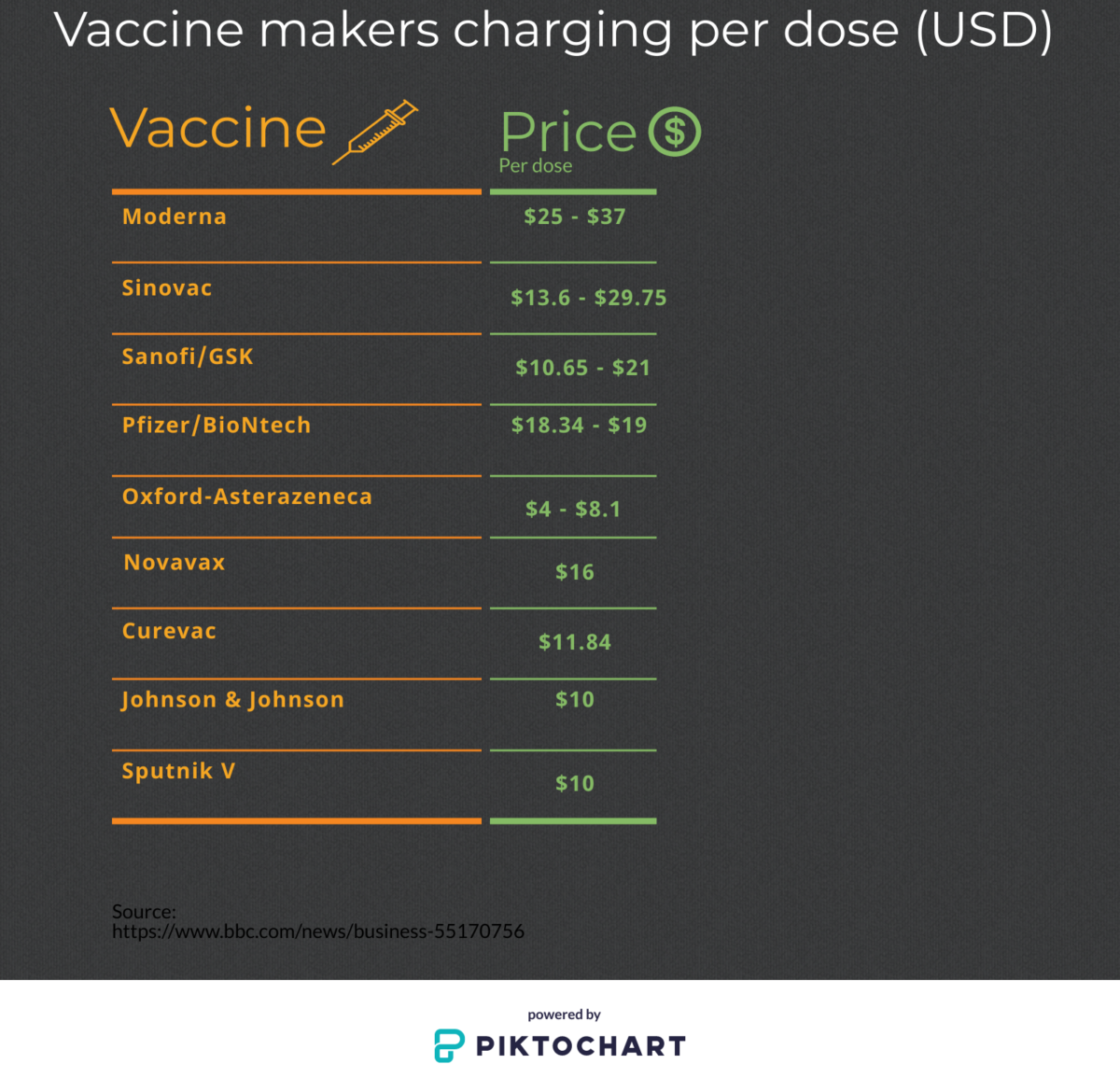The different vaccines developed to combat COVID-19 are not reaching the poorest countries due Currently only ten countries have administered 70 per cent of the vaccines.
Cuba is one of the countries that cannot access vaccines. President of BioCubaFarma Eduardo Martinez, in an interview for RT, said that Cuba’s main reason for developing its vaccines is how expensive is to purchase it produced abroad.
The vaccines’ costs vary between $ 8 per dose and $ 37.

The Chemist Pharmacist Andres Donoso, a graduate of the Cuenca State University in Ecuador, said that the vaccines’ cost depends on several reasons. “The type of excipients and the technology with which they were developed make vaccines expensive since some do not carry the virus. The cost may also include the price of transport since some need low temperatures to be transported,” said Donoso.
He added, “Another cause that can influence the cost may be that pharmaceutical companies are taking advantage of the moment.”
“If the pharmaceutical companies wanted to share with the rest of the world how their vaccines were developed, which technology was to be used, it would be possible to vaccinate more quickly and for free to all people,” said Donoso.
So that the vaccine and different supplies can reach the poorest countries, The World Health Organization developed the COVAX mechanism (COVID Vaccine Global Access) that offers:
- Doses for at least 20 per cent of a countries’ populations
- Diverse and actively managed portfolio of vaccines
- Vaccines delivered as soon as they are available
- End the acute phase of the pandemic
- Rebuild economies
Three countries in Africa (Ghana, Cote d’Ivone, Nigeria) and one in America (Colombia) have already received the COVID-19 vaccine through the COVAX mechanism, as reported by the WHO through its Twitter account.


Dr. Tedros Adhanon Ghebreyesus, Director general of the Word Health Organization, during his press conference, asked pharmaceutical companies to share the technology and licenses to increase the production of vaccines “I am glad that the Security Council has voted in favor of equity in vaccines, but If we want practical solutions, then the IP exemption must be taken seriously, and the Security Council can do so if there is political will. Voting for equity is important and we appreciate it, but concrete steps must be taken to increase production, vaccination, and end this virus as soon as possible,” Ghebreyesus said.
Ghebreyesus added that the best way to protect everyone is to suppress the virus everywhere at the same time.
